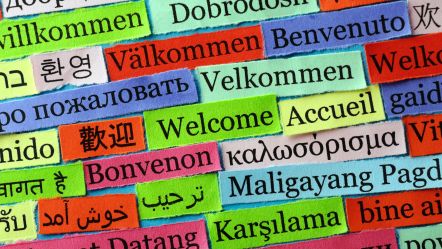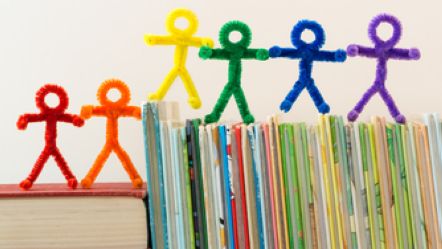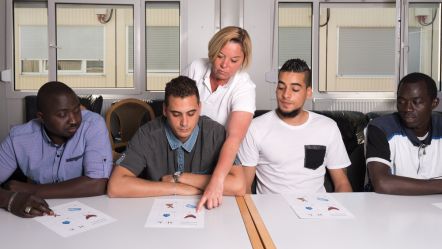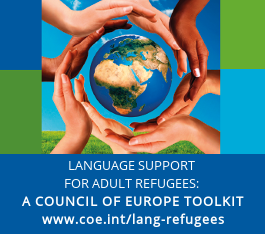Activities

Getting started

The tool in this subsection offers guidance on how to interact with refugees during an initial meeting. You may find it helpful to return to it from time to time to remind yourself what it has to say about fostering a positive group dynamic.

Learning vocabulary

Vocabulary plays a central role in all language learning. The three tools presented here suggest some techniques for learning everyday vocabulary and the words refugees need to express opinions and emotions.

Thinking about language learning

The Council of Europe has always argued that reflection plays a key role in effective learning. This section provides two tools that you can use to help refugees to think about themselves in relation to the languages they know, and to reflect on their language learning.

Scenarios for language support

This section of the Toolkit contains scenarios that can be used to plan language support sessions. Please read these notes carefully before beginning to use the scenarios. The aim of scenarios is to help you in planning non-formal language activities with refugees. A “scenario” is a set of communicative situations related to a real-world context in which refugees are likely to find themselves. The scenarios mainly involve spoken interaction but there are also reading, writing and listening activities.

Mapping journeys and interacting with the host community

Refugees need to be able to talk about journeys they have made in the past and hope to make in the future; and if they are permitted to move about freely in the locality they need to be able to find their way. In addition, activities carried out in the local community can provide a powerful stimulus to language learning.



